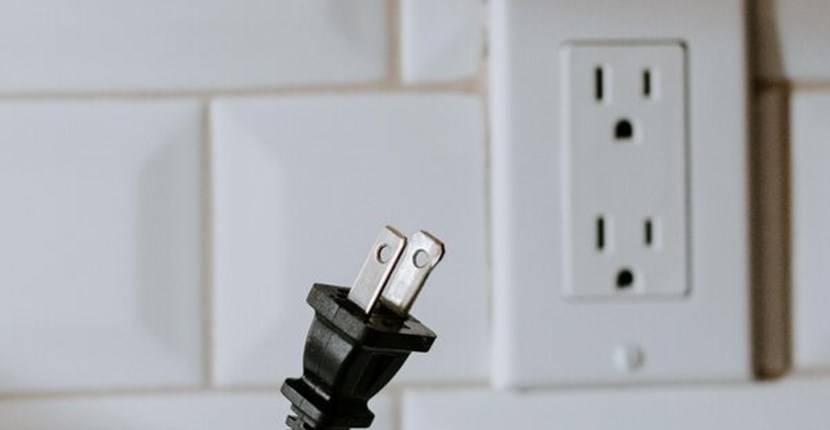Posted on 11 05 2022
How to be more energy efficient and save money

Don’t let the prolonged summer weather fool you – winter is on the way! It’s time to haul out some energy-saving strategies to help you stay warm and dry without breaking the bank.
Being more energy efficient will not only improve your home comfort, it will also help you play your part in tackling climate change by reducing greenhouse gas emissions.
Nearly 42% of New Zealand’s greenhouse gas emissions come from energy use. While cars and vans make up the biggest slice of the pie (13.6%), households have a significant impact on the country’s peak electricity use.
Energy-efficient appliances
We don’t suggest throwing out your low-rated appliances if they’re in good working order. But if you need to replace a washing machine, dryer, or other appliance, look for the Energy Rating Label and choose models with more energy stars.
According to the Energy Efficiency and Conservation Authority (EECA), sales of energy efficient appliances saved New Zealand $38 million in the year to March 2021. That’s a 21% increase in electricity savings.
The good news is that appliances are becoming increasingly energy efficient, and consumers are choosing more stars. In 2002, for example, 55% of dishwashers sold had 2 stars or fewer, and in 2021 69% of dishwashers sold had at least 3.5 stars.
Make the most of sunny days by drying your washing outside whenever you can, and if you do use the dryer, make sure it’s vented to the outside to reduce moisture inside the house.
If you have incandescent or halogen light bulbs, we recommend switching them for LEDs. While LEDs cost a bit more upfront, they use up to 85% less electricity and could save you around $100 a year. They can also last 15 times longer.
And on the topic of lighting, remember to turn the lights off if you’re leaving a room for more than 10 minutes.
Hot water
Heating water uses about 30% of the energy used by an average household and using less hot water is one of the easiest ways to save money.
- Wash your laundry on a cold-water cycle most of the time. Your clothes will get just as clean, and you’ll use 10 times less electricity.
- Have showers instead of baths and keep your showers short. Use a timer if necessary to keep your shower to 5 minutes - you could save hundreds of dollars a year.
- If you have a dishwasher, don’t turn it on until it's fully loaded, and use an eco-wash setting if it has one. If you need to pre-rinse your dishes, use cold water.
- When you’re shaving, fill the sink with hot water instead of leaving the tap running.
Heating
Heater running costs vary a lot. As a rough guide, heat pumps are the most efficient, while natural gas and unflued LPG gas heaters are the most expensive to run. Here are some more reasons to get a heat pump if you don’t already have one.
The key to keeping your heat pump working efficiently is to clean the filters regularly. If you’re able to stand on a step stool or a stable chair, the filters are easy to access and simply need vacuuming or washing in warm water at least monthly.
A heat pump warms the space quickly, so keep it on only while you’re using the room, and set it to "heat", not "auto", so it doesn’t waste energy switching from hot to cold. For a healthy living environment and greatest efficiency, set the heater thermostat between 18˚C and 21˚C.
If you own your home, you may be eligible to have 80% of the cost of your heat pump (up to $3000) covered with the Government's Warmer Kiwi Homes initiative.
Hold onto the heat
According to the Ministry of Social Development, up to 20% of heat in a home can be lost through cracks in window frames, gaps under the door and through the chimney.
If you have rattling windows, visible gaps or peeling paint around windows or door trim, your home has air leaks and will be losing heat.
You can help keep the heat in by closing doors and drawing the curtains as the day cools down. Put fabric draught stoppers at the bottom of doors. Choose floor-length curtains that are lined or made of thermal fabric and if you don’t have pelmets, hang them above the window frame, preferably at ceiling height.
If you have timber window frames, you could also consider a cheap alternative to double-glazing, which involves fitting plastic film to the inside of the windows. A window insulator kit is quick and easy to fit and can be purchased from hardware stores, or Negawatt Resources.
We can help you identify gaps and draughts around your home as part of our Home Energy Assessment and have a range of affordable products to block gaps and sources of draughts. Get in touch with the Greenside team to see how we can help you stay warm and save money this winter.